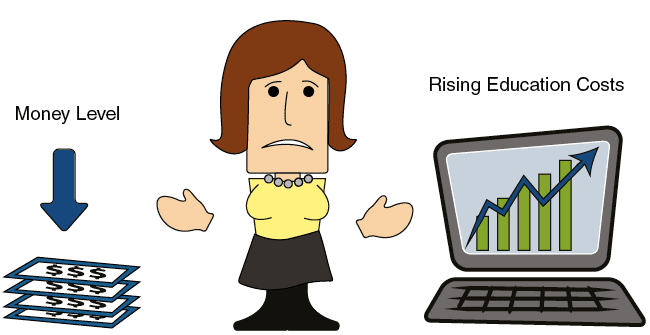The costs of education are extreme, and they are only growing. While inflation is a constant factor for anything you buy and your dollars today are going to carry less buying power tomorrow, inflation as it regards college costs is far greater than that of any other inflation you will run into. The costs of the tuition and fees that a college student today will pay are far greater than those of a student in years past. In the same vein, today’s students are going to pay less, even when the numbers are adjusted for standard inflation, than will a child born today when he or she goes to college down the line.
The rule of thumb is that college tuition costs rise at about twice the rate of inflation. Unfortunately, even this rather harsh number is still far too kind, as college cost inflation can vary considerably. In some cases, the costs of college rise at as much as 6.5 times the general rate of inflation. However, there are rare times when college costs inflate at a slower rate than general costs do, though these times are rare. To be on the safe side, assume that they will rise rapidly.
A bachelor’s degree requires a financial outlay in the $70,000 to $160,000 range according to http:// www.collegeboard.org at the time of writing. For many students, this is an extraordinary burden to bear, and it can be hard for parents to both save for their retirements and save for their children’s college educations. This is why starting out as early as you can and being aggressive in both your saving rates and the investments into which you put your child’s college savings are important components of being successful in this endeavor.
In some cases, it may be useful for your child to take an alternative path versus going to a traditional four-year college. Sometimes a technical or vocational school might be a better investment, and some careers do not require a degree during their initial stages. When the costs are excessive, having them be borne at a later time by the person’s employer may be the best course of action to take. Keep in mind that it can be very difficult, even with an aggressive savings plan and the compounding power of the stock market, to effectively save enough money to go to college. However, the more you can save, the less you will have to rely on loans.



